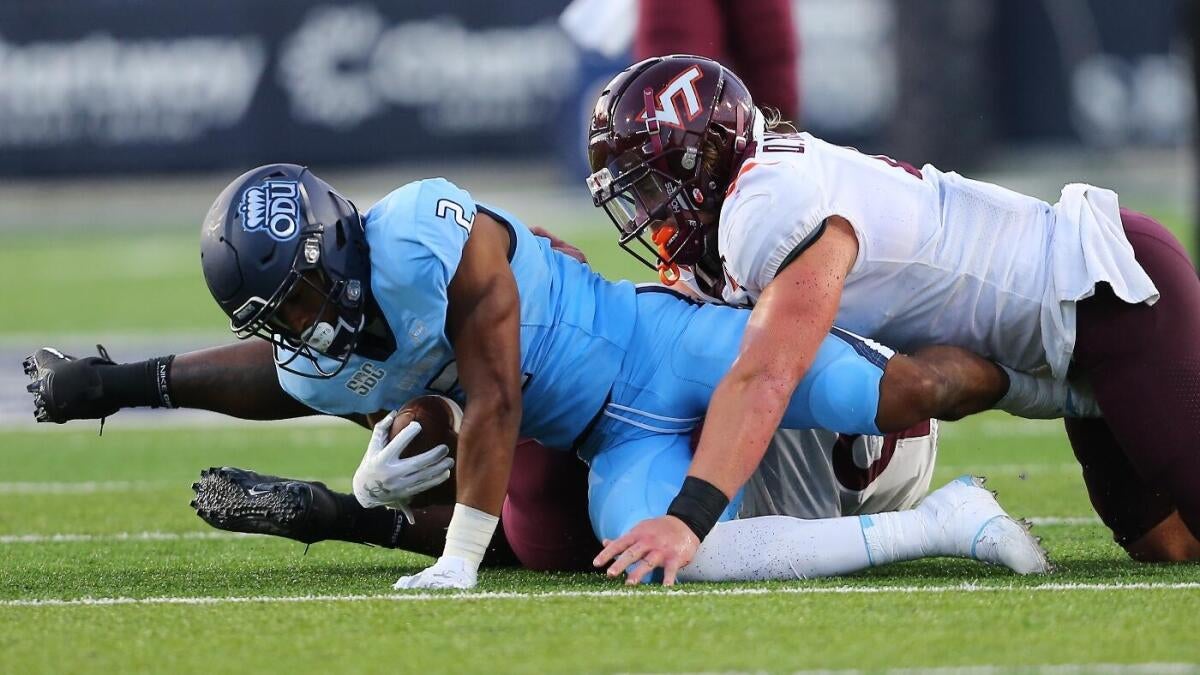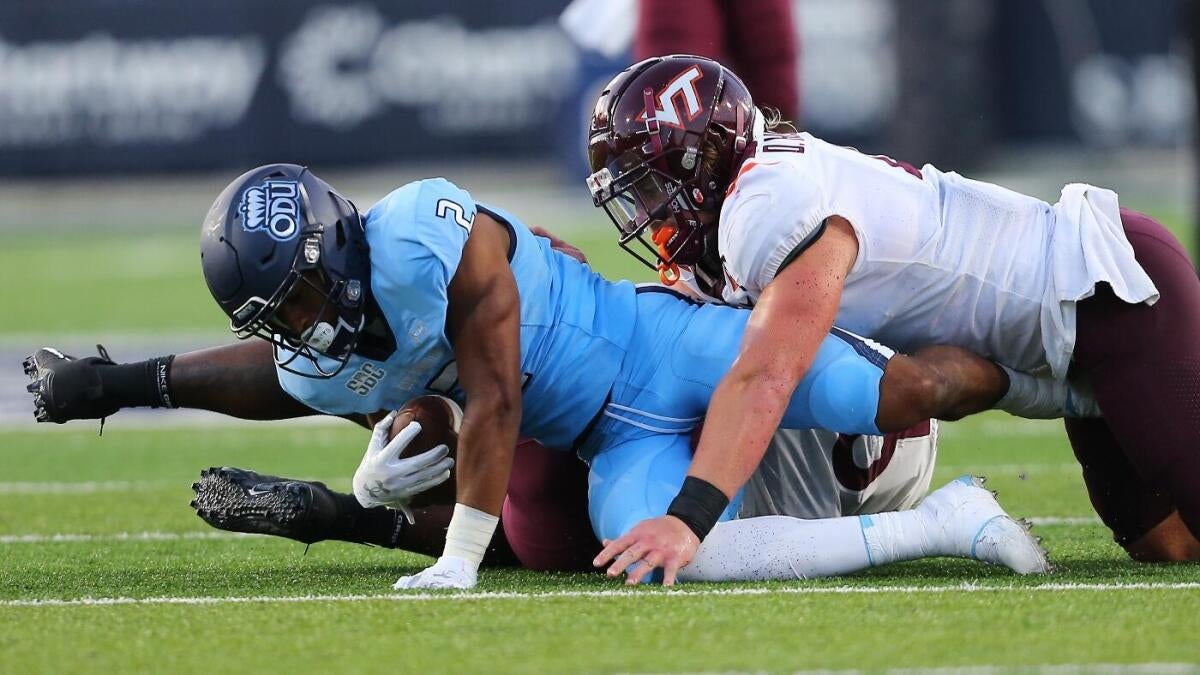The Strategic Sideline: Analyzing the Virginia Tech-Old Dominion Football Series Restructuring
Introduction: A Shift in the Gridiron Landscape
The recent restructuring of the Virginia Tech-Old Dominion football series has sent ripples through the college football community. This decision, which involves canceling four future matchups while retaining three, is more than just a scheduling adjustment. It reflects a broader shift in the strategic priorities of college football programs, driven by financial considerations, competitive balance, and long-term program strategy. This report explores the multifaceted reasons behind this decision and its implications for both universities and the broader college football world.
The Changing Tide: A Look at the Renegotiation
The decision to renegotiate the 13-game scheduling agreement, initially signed in 2012, marks a significant turning point. The original agreement was designed to foster regional competition and fan engagement. However, the cancellation of games scheduled in Norfolk for 2027, 2029, and 2031, as well as a 2028 game in Blacksburg, signals a change in direction.
The primary catalyst for this change is the evolving nature of college football. The rise of the transfer portal and Name, Image, and Likeness (NIL) deals has created a more volatile recruiting environment, necessitating strategic resource allocation. Additionally, conference realignment and the potential for expanded College Football Playoff access have incentivized programs to prioritize Power Five matchups and enhance their national profiles.
Virginia Tech’s Director of Athletics, Whit Babcock, emphasized that the decision to renegotiate was driven by the changing landscape of college football. This shift underscores the need for programs to adapt to new realities and prioritize strategic planning.
The Financial Play: Guarantee Games and Revenue Streams
The restructured agreement highlights a clear financial component. The three remaining games, all to be played in Blacksburg in 2025, 2026, and 2030, have been converted into “guaranteed games” for Old Dominion. This means Virginia Tech will provide a financial guarantee to ODU for these contests, essentially paying the Monarchs to travel to Blacksburg.
At first glance, this arrangement might seem counterintuitive. Why would Virginia Tech pay a Conference USA opponent to play at Lane Stadium? The answer lies in the broader economic calculus of college football. Home games, particularly against regional opponents, generate significant revenue through ticket sales, concessions, and merchandise. By securing these home games, Virginia Tech can bolster its athletic budget and reinvest in its football program.
For Old Dominion, the guaranteed payments provide a crucial influx of revenue that can be used to support their football program and student-athletes. This is particularly important for Group of Five programs like ODU, which often face significant resource disparities compared to their Power Five counterparts. The financial security afforded by these guaranteed games allows ODU to invest in coaching, facilities, and recruiting, ultimately enhancing their competitiveness.
Competitive Strategy: Weighing Risk and Reward
Beyond financial considerations, the decision to alter the series reflects a strategic assessment of competitive risk and reward. Virginia Tech has reportedly lost its last two games played at Old Dominion, including a stunning 49-35 upset in 2018 where ODU was unranked and Virginia Tech was ranked #13. This undoubtedly factored into the decision to cancel the remaining games in Norfolk.
Scheduling Group of Five opponents on the road presents a unique set of challenges. While these games may seem like easy wins on paper, they can often be fraught with risk. Road environments can be unpredictable, and the pressure to win can be amplified against perceived lesser opponents. An unexpected loss to a Group of Five team can have significant ramifications for a Power Five program’s national ranking and College Football Playoff aspirations.
By canceling the road games at Old Dominion, Virginia Tech mitigates the risk of another upset and protects its national brand. The Hokies can now focus on scheduling more strategically advantageous non-conference games, potentially including matchups against Power Five opponents that could enhance their strength of schedule and improve their playoff resume.
The Ripple Effect: Impact on Regional Rivalries
The alteration of the Virginia Tech-Old Dominion series has broader implications for regional rivalries in college football. These types of regional matchups often provide valuable opportunities for fan engagement and generate local excitement. They also offer smaller programs like Old Dominion the chance to elevate their profile by competing against established Power Five institutions.
While the cancellation of the Norfolk games is a setback for ODU fans who relish the opportunity to see their team compete against Virginia Tech, the guaranteed games in Blacksburg still provide a platform for regional competition. Moreover, the financial benefits derived from these games can help ODU invest in its program and potentially schedule other regional matchups in the future.
It is important to note that the changing landscape of college football is forcing many institutions to make difficult decisions about scheduling. The pursuit of national relevance and financial stability is often prioritized over regional considerations. However, the preservation of regional rivalries remains an important aspect of the college football experience, and athletic departments must strive to find creative solutions that balance competitive strategy with local fan engagement.
The Future of the Series and College Football Scheduling
The Virginia Tech-Old Dominion series restructuring is a microcosm of the broader trends shaping college football scheduling. As the sport becomes increasingly nationalized and driven by financial considerations, athletic departments are forced to make strategic decisions that prioritize revenue generation, competitive advantage, and brand enhancement.
The rise of guarantee games, the increasing emphasis on Power Five matchups, and the growing influence of television networks are all contributing to a more homogenized scheduling landscape. While these trends may benefit the top programs in the country, they can also create challenges for smaller institutions that rely on regional rivalries and home-and-home series to generate revenue and build their fan base.
Moving forward, it will be crucial for college football stakeholders to find ways to balance the competing interests of national relevance and regional engagement. This may involve exploring alternative scheduling models, such as protected rivalries or conference-mandated non-conference games. It may also require a re-evaluation of the financial incentives that drive scheduling decisions, ensuring that all institutions have the opportunity to compete and thrive.
Strategic Realignment: A New Game Plan
The decision to alter the Virginia Tech-Old Dominion football series is not simply about canceling games; it’s about adapting to the evolving realities of college football. It reflects a strategic realignment driven by financial considerations, competitive risk assessment, and the pursuit of national relevance. While the move may have implications for regional rivalries and fan engagement, it ultimately underscores the growing complexities of scheduling in the modern era of college football. The game on the field may be what fans see, but the game behind the scenes is becoming increasingly sophisticated and consequential.












